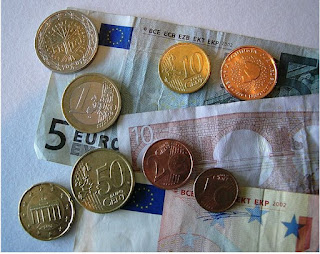The concept of "Money"
Money serves its primary function as a medium of exchange. Without it we will be forced to barter for everything. Barter economies are highly inefficient as every transactions become unbearably complicated,
In the old days, human civilizations tended to barter for food and other everyday necessities. Only until 5000 years ago, in the area of modern day Iraq, the shekel was used as currency. The shekel represented a certain weight of barley equivalent to gold or silver. It eventually became a coin currency (a natural advancement to avoid having to weigh every time).
In the same way, the British currency is called the pound because it was originally equivalent to a pound of silver.
The first ever banknotes were issued in 7th century China. but it took another 1000 years before paper money was adopted in Europe by Sweden's Stockholms Banco in 1661.
Money is a unit of account, a yardstick against which things can be priced, which helps us to judge the value of something. It is assumed that it is also a store of value, which means it will not lose its worth overtime. However, it is quite debatable whether this second claim is fulfilled by our currencies today.
Money can be summarised into two categories:
Commodity money: commodities such as gold or silver, which has an intrinsic value because of demands for them.
Fiat money: These are money without or with very small intrinsic value (such as paper) that has been decreed by a government to legally worth a certain amount.
Originally, paper money was convertible into commodity money. That means people could demand a certain amount of gold in exchange for their dollar. However, the convertibility was stopped by President Nixon on August 15 1971 and the dollar became a pure fiat currency.
Paper money relies on a country's legal system and the government's credibility at ensuring the currency's future worth. It is a system based on trust. The paper notes themselves are worth almost nothing, and the figures shown by modern day online banking are really just numbers on the computer screen. The money is backed up by trust; trust that the government will ensure it's future worth.
Time and time again, behind the genuine forces of supply and demand, it seems that our economies, our markets, our prosperity and our fate to a large extent actually depend on the intangibles such as believe, trust and confidence - a lot of the time it is actually up to us, people.
What this implies, I can't quite pinpoint, but perhaps what we need to concentrate on is not the explicit unsustainable year-on-year rapid GDP growth but a better look at our souls, our irrationalities, and our society's intangible qualities.


Comments
Post a Comment